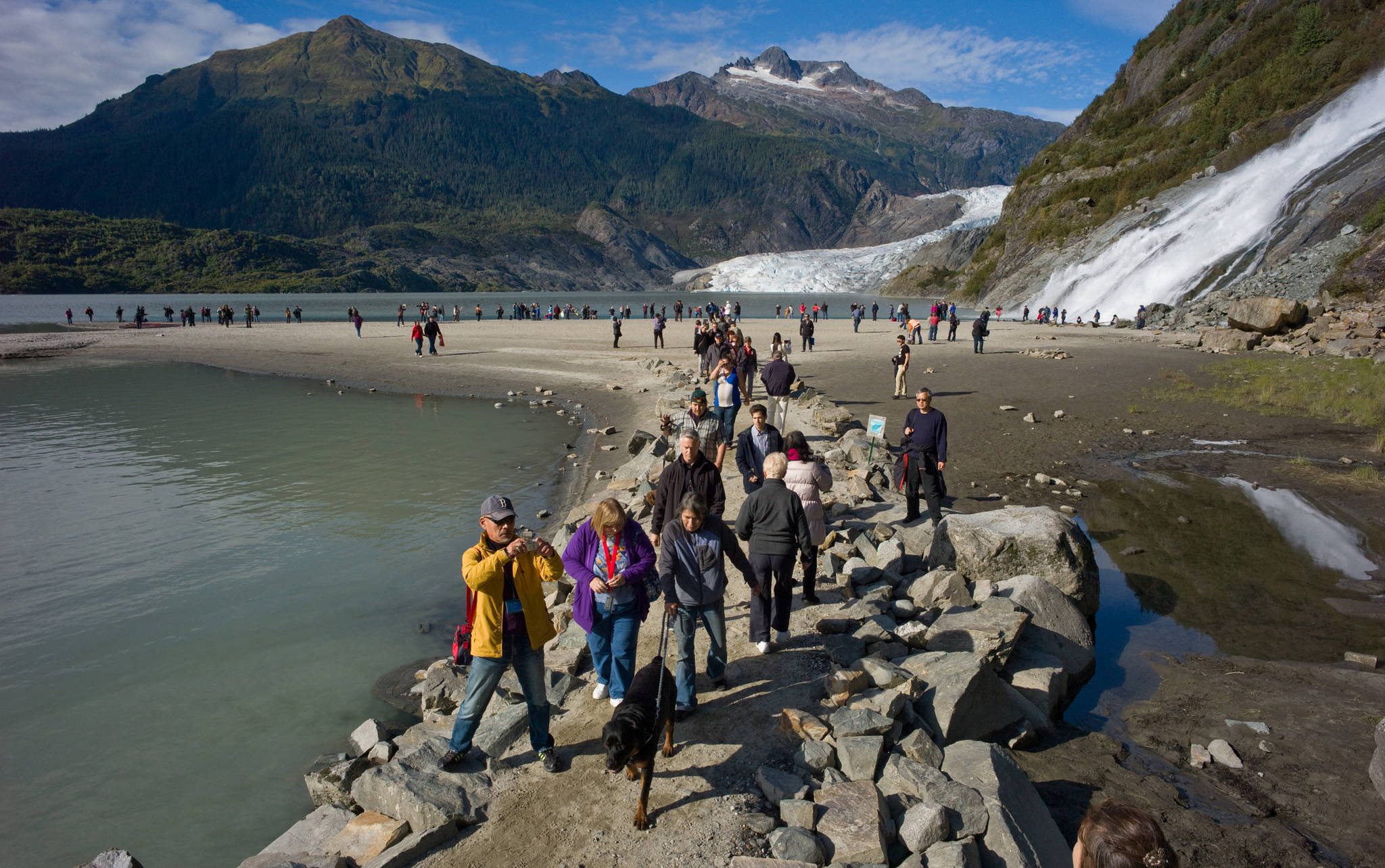“How did we get here?”
That was the first part of a two-part question Jim Powell posed in a column last week about the negative impacts of tourism. He answered by recalling some of the concerns, actions and paths not taken since the 1980s. And then reasonably wonders if it’s “time for Juneau to consider limiting the number of cruise ship passengers.”
Laura Martinson responded with her own question: What will happen if “we stifle a growing industry to keep things the way they used to be, in a time where nothing is as it used to be?”
To Brian Flory, the way it used to be means one day a week free from visiting cruise ships. Without the buzz of tourist-toting helicopters flying overhead, he could hike along Juneau’s mountain ridges with the sound of silence as his primary companion.
And Kimberley Metcalfe longs for the days before tourist traffic disrupted the relative tranquility of her Basin Road neighborhood.
To gain a different perspective on these concerns, consider Powell’s first question through the story about economic pressures knocking one of the last surviving Puritan ethics out of the lawbooks in Massachusetts.
The origin of the so-called “Blue Laws” predates the American Revolution. At one time, New England colonists even prohibited farming, hunting and fishing on “the Lord’s Day.” After the nation was formed, exceptions that began with “works of necessity and charity” eventually expanded to allow some small enterprises and the service industry to operate on Sundays.
But until 1983, large retail businesses, including grocery stores, couldn’t open on Sundays. To do any serious shopping, residents drove to a neighboring state.
“Were Massachusetts truly an island, the extra shopping day would not increase the total retail business done in the commonwealth,” Gov. Edward J. King said on the day he signed the bill repealing the Sunday closure law. “But we are not an island, and today we lose important economic activity to bordering states.”
King had opposed the law. He believed the loss of sales and associated tax revenue was less important than promoting Sundays as a day dedicated to family. A spokesman for the Roman Catholic Archdiocese of Boston agreed. ”Now commercialism has made an entry,” the Rev. Peter Conley said. ”For what purpose. Materialism?”
Prior to that, Blue Laws in other states had been challenged on grounds they violated the constitution. However, the U.S. Supreme Court ruled they were not “laws respecting an establishment of religion.” Chief Justice Earl Warren further stated the First Amendment “does not bar the State from achieving its secular goals,” including encouraging family and friends to spend “one day apart from all others as a day of rest, repose, recreation and tranquility … a day on which there exists relative quiet and disassociation from the everyday intensity of commercial activities.”
On that basis, Juneau’s Assembly could pass an ordinance limiting cruise ship visits to six days per week. But like any proposal to limit the total number of visitors, it’s not going to happen without dividing the community between those who benefit and those who lose.
Which is why I’m neither for nor against the idea. Instead, my objective is to expand the discussion to consider what’s already been lost by putting a royal crown on the local economy.
There’s never been a time when anything was “as it used to be.” Change has been constant and consistently upward. Bigger, more and faster are almost always better.
Today, the pace of life leaves us less opportunity to reflect on the downside of growth. We’re getting less time with family and friends. Less time for rest and recreation. And less quiet in our homes, neighborhoods and among Juneau’s magnificent settings.
And the thousands of visitors wandering the town each day are less likely to experience moments of genuine kindness like the one recently shared by Sinclair Mann of Australia.
While shopping in Martinson’s store, Mann’s wife found a pendant and chain she really liked. But it was too expensive for them to purchase. After learning she was suffering from Lymphoma, he tells us the “two sales people were so concerned that they shed a few tears and included the chain at no cost.”
And that’s an ethical sensibility easily unlearned by always seeking more.
• Rich Moniak is a Juneau resident and retired civil engineer with more than 25 years of experience working in the public sector. My Turns and Letters to the Editor represent the view of the author, not the view of the Juneau Empire.

